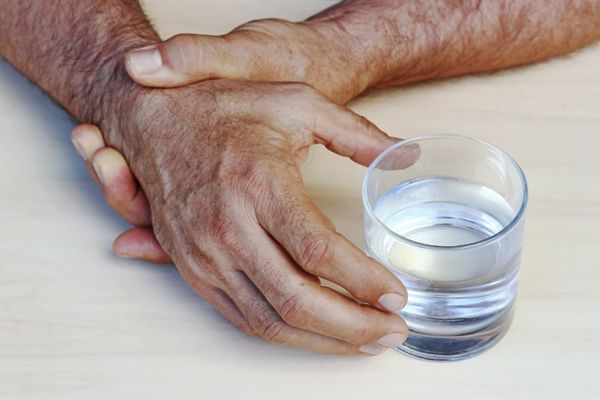The year was 1990 when one morning, Michael J. Fox experienced something odd. He had woken up to find his left pinky twitching uncontrollably. One year later, Fox visited a neurologist and was told he had early-onset Parkinson’s.
Like so many others faced with devastating news, the beloved Hollywood actor used substance abuse to escape the distress of his diagnosis. This devolved into a years-long battle with alcoholism which Fox later discussed in his memoir “Lucky Man”.
A Hidden Diagnosis & Unhealthy Coping Mechanism
Parkinson’s is a degenerative disease of the brain that affects the central nervous system, causing tremors, stiffness, and loss of balance. The symptoms get more severe over time, eventually affecting the senses, cognitive ability, and mental health, and are associated with depression and dementia-like symptoms at later stages.
Fox was 29 years old and at the peak of his career, beloved by America for his role as the charming rapscallion from the Back To The Future franchise when he was diagnosed with an incurable disease that would eventually lead to increasingly debilitating symptoms.
For years, Fox kept his diagnosis a secret from the public. He continued to work in the entertainment industry and suffered in secrecy and silence. As Parkinson’s disease progressed, Fox’s symptoms became more severe, making it increasingly difficult for him to perform.
Fox’s drinking problem was causing increased strain on him and his family. However, with the support of his family and friends, he sought help and was eventually able to overcome his alcohol addiction. In his memoir, Fox wrote about the experience of getting sober and the importance of finding healthy coping mechanisms. He also emphasized the role of his wife, Tracy Pollan, in supporting him through his journey of recovery.
Today, Fox continues to raise awareness for Parkinson’s disease and advocates for research to find a cure. Through his foundation, he has raised millions of dollars for Parkinson’s research, and his efforts have significantly impacted the lives of those living with the disease. He is also a vocal advocate for addiction recovery and has been open about his own struggles with alcohol.
Parkinson’s and Alcohol
The symptoms of Parkinson’s disease can be physically and emotionally challenging for those living with the disease. Some individuals turn to alcohol as a way to cope with their condition and to find temporary relief from the stress, anxiety, and physical discomfort associated with the disease. However, relying on alcohol as a coping mechanism can lead to addiction and the development of alcoholism.
Alcohol can exacerbate the symptoms of Parkinson’s disease, making them much more severe. Alcohol can also lead to the development of Parkinson’s disease. Studies have shown that chronic heavy drinking can increase the risk of developing Parkinson’s disease by damaging the neurons in the brain that control movement.
There’s one common factor that explains why Parkinson’s disease and alcoholism share a complex relationship. It’s dopamine, the neurotransmitter essential for the proper functioning of the brain’s motor system that also plays a starring role in the reward center of the brain, and the formation of addiction.
Dopamine: A Common Denominator
Parkinson’s disease is a progressive neurological disorder caused by the degeneration of dopamine-producing neurons in a specific brain region called the substantia nigra. This loss of dopamine-producing neurons, in turn, leads to a significant reduction in the amount of dopamine in the brain. This causes dopamine levels to be too low.
The shortage of dopamine is directly linked to the characteristic motor symptoms of Parkinson’s disease, such as tremors, rigidity, slowness of movement, and loss of balance. As a result, Parkinson’s disease is often treated with medications that increase dopamine levels in the brain. However, these treatments are not curative and do not slow the progression of the disease.
Now, consider how alcohol affects dopamine levels in the body. Initially, alcohol consumption can increase dopamine release in some regions of the brain (this is one of the reasons why alcohol can be addictive and lead to cravings for more alcohol). However, over time, chronic alcohol use can decrease dopamine levels in the brain because the body becomes accustomed to alcohol artificially increasing the presence of this neurotransmitter and stops the natural production of dopamine. Further, alcohol can damage dopamine-producing neurons, especially in the substantia nigra — the very same part of the brain affected by Parkinson’s.
It is essential for individuals with Parkinson’s disease–or any other medical disorder–to seek healthy coping mechanisms for managing their symptoms. Regular exercise, therapy, and support groups can be effective in improving quality of life and reducing the need for alcohol as a coping mechanism.
